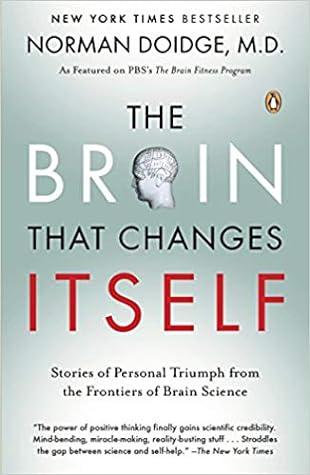More on this book
Community
Kindle Notes & Highlights
Started reading
July 20, 2019
David Ben-Gurion, the first prime minister of Israel, taught himself ancient Greek in old age to master the classics in the original. We might think, “What for? Who am I fooling? I’m at the end of the road.” But that thinking is a self-fulfilling prophecy, which hastens the mental decline of the use-it-or-lose-it brain.
When Pablo Casals, the cellist, was ninety-one years old, he was approached by a student who asked, “Master, why do you continue to practice?” Casals replied, “Because I am making progress.
Neuroplastic research has shown us that every sustained activity ever mapped—including physical activities, sensory activities, learning, thinking, and imagining—changes the brain as well as the mind. Cultural ideas and activities are no exception. Our brains are modified by the cultural activities we do—be
Music makes extraordinary demands on the brain. A pianist performing the eleventh variation of the Sixth Paganini Etude by Franz Liszt must play a staggering eighteen hundred notes per minute. Studies by Taub and others of musicians who play stringed instruments have shown that the more these musicians practice, the larger the brain maps for their active left hands become, and the neurons and maps that respond to string timbres increase; in trumpeters the neurons and maps that respond to “brassy” sounds enlarge. Brain imaging shows that musicians have several areas of their brains—the motor
...more
The pragmatic implication is that the medium is part of the message. Listening to an audio book leaves a different set of memories than reading does. A newscast heard on the radio is processed differently from the same words read in a newspaper.
The cost is that such activities as reading, complex conversation, and listening to lectures become more difficult.
In his book Émile, or On Education—the first detailed book on child development ever written—he proposed that the “organization of the brain” was affected by our experience, and that we need to “exercise” our senses and mental abilities the way we exercise our muscles.
It is the idea of scientific and political progress—and its constant ally, the idea of individual perfectibility—that may well make Americans so interested in self-improvement, self-transformation, and self-help books, as well as in solving problems and in having a can-do attitude.
Socrates, in the Republic, argued that a person could train his mind the way gymnasts trained their muscles.


